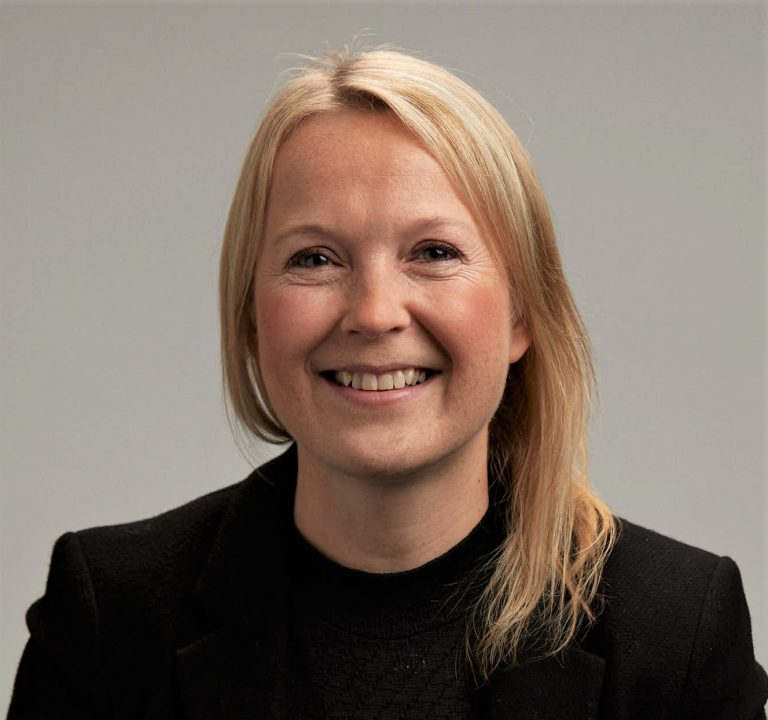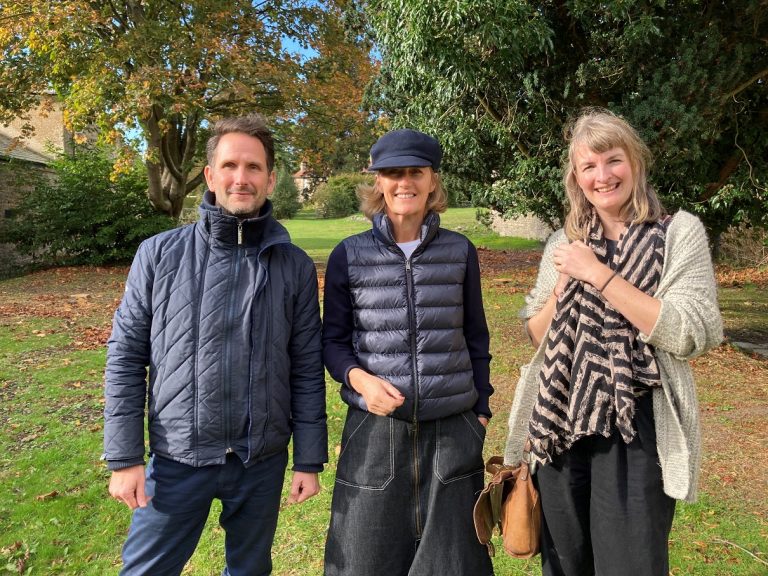More than a third of firms report fraud increase in 2021
Eight in ten (84%) mid-sized businesses in the UK experienced fraud in 2021, with more than a third (37%) of companies reporting an increase on the previous year, according to a new survey from accountancy and business advisory firm BDO LLP.
Average losses totalled £223,000, with the professional services, leisure and finance sectors the hardest hit. Almost a third (30%) of firms reported suffering security breaches through cyber-attacks over the last 12 months.
BDO’s Fraud Survey – which monitored fraud trends at 500 mid-sized UK firms throughout 2021 – found that while one third (33%) of these frauds were externally generated, the majority (38%) involved collusion between internal and external individuals, while more than a quarter (29%) were committed against companies by their own employees.
The ongoing impacts of the pandemic and associated lockdowns have exacerbated the risk of being targeted by fraudsters, with many citing the shift to remote working as a driving factor. Of those surveyed, approximately nine in ten (89%) business owners and directors think their company is more exposed to fraud since 2020, while almost a quarter (23%) believe their exposure has “significantly” increased. The overwhelming majority (89%) said fraud risks at their business have increased as a direct result of home working.
With millions of employees continuing to work from home – often without access to workplace IT support – the threat posed by scammers remains heightened. However, businesses with employees working on-site also remain vulnerable, with considerably more than half (67%) of the firms impacted by fraud reporting that their employees had predominantly operated from the office or work premises over the last 12 months.
Despite the rising number of frauds committed against mid-sized firms, a quarter (26%) of business owners think the level of fraud awareness among their employees has declined since the onset of the pandemic as fraudsters deploy increasingly sophisticated tactics. Nevertheless, six in ten (63%) of the businesses surveyed have not implemented fraud awareness training programmes for their employees over the last year, while one in five (21%) don’t have a fraud response plan in place.
Looking forward, almost three quarters (69%) of company owners and directors are concerned about their business being targeted by fraudsters over the next 12 months – with 15% stating they are “very concerned.” However, 85% said resource constraints as a result of COVID-19 disruption will limit their investment in fraud detection and prevention tools over the coming year.
Commenting on the findings, Kaley Crossthwaite, head of fraud at BDO LLP, said: “Despite impacting so many businesses and individuals, fraud remains under reported, under investigated and under prioritised.
“Ongoing disruption wrought by the pandemic – including home working which has added complexity to the process of identifying and defending against cyber-attacks – has magnified the risk for businesses. The increasingly sophisticated and opportunistic tactics being developed by fraudsters have also outpaced the protections being implemented by many firms.
“As organisations re-evaluate their hybrid working models for the year ahead, they should pay particular attention to robust internal controls, including strengthening their fraud risk management programmes to lessen their exposure to financial crime.”
Super allowances having limited effect on UK corporates, says tax expert
Too few SME businesses are yet taking advantage of super allowances for the incentives to have any positive effect on the wider UK economy, according to a leading tax expert.
Becky Maguire, Tax Partner with UK Top 10 firm Azets in Yorkshire, describes the introduction of super capital allowances during the Spring Budget 2021 as an unexpected boost to companies, but there is a risk of the relief having little impact unless more businesses start using the enhanced tax deduction before it is withdrawn in 2023.
The super allowances available include the super deduction, a 130% first-year allowance for expenditure on main pool qualifying assets such as machinery, furniture, fittings, computers etc, and the enhanced special rate, a 50% first-year allowance for assets including integral features in buildings such as electrical, water and heating systems.
These are in addition to the existing Annual Investment Allowance (AIA) which permits 100% relief for up to £1 million of expenditure incurred each year on qualifying plant and machinery assets, until 31 March 2023.
According to the Office for National Statistics (ONS) the uptake rate of the super deduction scheme still remains unclear but “early evidence suggests super deduction claims are building more slowly than expected”.
Becky Maguire, Tax Partner at Azets, said: “Business investment accounts for a significant part of GDP and is crucial to boosting long-term growth and productivity. The introduction of the super deduction was positive for many companies as it has no upper limit and broad eligibility across a range of assets.”
“The lack of uptake of super allowances is likely due to a number of factors. Uncertainty plays a part, with the ever-present threat of stricter Covid measures impacting retail and hospitality businesses in particular. We know that some businesses are also struggling to accelerate expenditure due to supply chain and project management issues and with the super relief set to expire in just over 12 months, may not be able to accelerate their spending to take full advantage of it.
“With the Chancellor set to make his Spring Update speech on 23 March, it will be interesting to see if he decides to extend the window for the super deduction further and / or narrow its application to focus on greener assets.”
Becky Maguire is urging businesses to review their ability to invest now and use the incentives available to them whilst they still can.
She concluded: “Business owners should look carefully at the timing of planned investment in new assets to take full advantage of the enhanced allowances. Up to 31 March 2023, the additional tax savings through super allowances will be most beneficial to companies that have already absorbed the 100% relief available through the AIA. Businesses should seek professional advice from specialist firms to maximise and accelerate the available tax incentives.”
North Yorkshire architect secures historic Raby Castle contract
Acclaimed landscape architect Alistair Baldwin has been brought in to redesign the extensive public areas around Raby Castle’s landmark new development, The Rising, which will see several historic buildings sympathetically restored to their former glory and be made available to the community and the wider public.
The Richmond based specialist has been retained by Raby Estate owners, Lord and Lady Barnard, to recapture the sociable community feel of Old Raby village, which existed beyond the castle walls.
The extensive redevelopment of the buildings that will comprise The Rising will be tied together with thoughtfully designed landscaped areas.
The Duchess’ Walk – a corridor of statuesque trees and soft planting that will connect the restored buildings to the new visitor arrival hub The Round House, and lead to the rest of the castle, park, and gardens.
A central terraced garden which will be surrounded by buildings including the new Round House and Vinery restaurant, has views of the spectacular 700-year-old castle beyond and will draw visitors in through a new entrance, bringing a village centre to the scheme.
Alistair Baldwin said: “Our plans focus on providing the local community with beautiful spaces to meet and mingle, and the way we have designed those spaces evokes the sense of a traditional village connecting the various elements of The Rising together, providing sociable spaces where people can come together, shop, dine, meet and enjoy the gardens.
“The scheme will utilise reclaimed materials from around the estate to create a space which is authentic and sympathetic to its surroundings. Raby Castle is a dramatic landscape, and the scheme aims to open up a whole new vista to the castle which hasn’t been seen before. It holds a special place for me as a local lad, so it has been an absolute honour to bring Lord and Lady Barnard’s vision to life with these new designs.”
Lady Barnard said: “We have been working together on these plans since 2018 and hours of planning and thought have gone into these designs, so I will take great pride in seeing them come to life. I want to create something beautiful in an area of the castle that has been relatively neglected for decades.
“This is an incredibly important piece of the development work for Raby and carries with it a great deal of responsibility. This is not only my family’s legacy, but a legacy for the local community as well.”
World-class Italian garden designer Luciano Giubbilei has also been selected to lead the extensive remodelling of historically important Walled Garden at Raby Castle.
The garden was originally designed to supply the castle with fresh produce but was later developed more formally into a pleasure garden for the family. The plans will redesign and develop the ornamental gardens to provide a magical outdoor space where visitors can move through exquisite planting or attend performances and events.
Lady Barnard explains: “The planting and structures have now been agreed and Luciano has travelled across Europe to find the very best plants for the garden. The iconic yew hedges within the current garden will remain, as they are a real talking point and fortunately Luciano loves them.”
RWO Associates announces new Leeds office appointment
Ganesh Thapa has joined RWO Associates as head of the structures team in Leeds in a move that will see him working alongside the senior management team on planned strategic growth, new business development, account management, and developing a team of engineers and technical specialists.
A chartered member of the Institution of Civil Engineers and a lecturer for the IStructEMember Examination course (Yorkshire Branch), he will also be involved closely in stafftraining, technical compliance for designs and pushing forward with workflows acrossfrontline operations.
Bringing more than 30 years’ experience working on a variety of engineering projects to the role, Ganesh has extensive expertise in managing, leading and delivering multi-million pound construction schemes in the commercial, industrial and education and sports and leisure sectors.
Head of Leeds office Andrew Fairburn said: “With his leadership and project management skills, Ganesh will be a key addition to the senior team as we continue to expand our presence across the north of England and nationally this year, while also delivering the highest standards of service and engineering solutions to current clients.”
Brunswick Arcade: update to ongoing works
Major regeneration works continue to progress at Brunswick Arcade to bring this large-scale landmark building back into full economic use. The scheme will create new residential accommodation over ground-floor retail units and will deliver a new frontage that is in keeping with the local Conservation Area.
The works, which will contribute significantly towards the regeneration of the historic Beverley Road area, will replicate the original arcade through use of traditional materials, and will work to reflect the grand scale of the original design.
Stabilisation and hand-demolition works are currently under way on site and are expected to be completed before spring 2022. The stabilisation process is critical to ensure the long-term future of the building and involves the installation of both metal restraint straps and threaded metal straps to the brickwork at the first and second-floor levels. Once this is completed, construction work will begin on the building’s façade, which is anticipated to be completed by winter 2022.
Councillor Daren Hale, Leader of Hull City Council, said: “It’s exciting to see the progress that has been made on the Brunswick Arcade, and I’m sure everyone in the local area is looking forward to seeing the arcade being restored to its former grandeur – as well as bringing in new spaces for business and residential options.
“We want to thank everyone for their patience and co-operation so far with the project, and road users and pedestrians for following advice and guidance when travelling around the arcade area.”
Road users are reminded to expect delays and are encouraged to avoid the area at peak times where possible. The area between Norfolk Street and Trafalgar Street on Beverley Road is reduced to two lanes, meaning that all vehicles will share the carriageway. Traffic flow is being maintained in two directions, with one lane northbound and one lane southbound remaining open throughout the works.
Pedestrians are also reminded to follow all signage and to cross Beverley Road at the pedestrian crossings, which are signposted clearly around the area of the works. Local businesses remain open as usual, which is highlighted on signage around the works.
The restoration is part of the Beverley Road Townscape Heritage Scheme, funded by the National Lottery Heritage Fund and Hull City Council.
David Renwick, Director of England, North at The National Lottery Heritage Fund, said: “Investing in heritage means investing in the community it belongs to, which is why we are delighted to see the progress to Brunswick Arcade as part of the Beverley Road Townscape Heritage Scheme.
“Thanks to National Lottery players, this will not only preserve this important heritage to be enjoyed by locals and visitors from further afield, but will also play a significant role in boosting the local economy and aiding the wider regeneration of Hull.”
Mayor of West Yorkshire launches Green Jobs Taskforce
Experts from across the region have set out a roadmap for future jobs to tackle the climate emergency by launching the Green Jobs Taskforce.
The Green Jobs Taskforce, chaired by Tracy Brabin, Mayor of West Yorkshire, met yesterday bringing together experts from business, education and training, and the third and public sectors. The taskforce began its review of the landscape for green jobs and skills in West Yorkshire and decisions were made on how to reach its goal to position West Yorkshire as a leader for green skills and jobs and set out a roadmap to deliver the skills and jobs needed to address the climate emergency.
They also discussed key themes for the next twelve months, including the development of the Mayoral Green Jobs Gateway, which will create 1,000 well paid, skilled, green jobs for young people and ensure that West Yorkshire has the pipeline of talent needed to realise its ambitious target of becoming a net zero carbon economy by 2038 with significant progress by the end of the decade.
Estimates show that West Yorkshire has the potential to create over 70,000 good, new, high skilled jobs in the green economy by the middle of the century, and 40,000 of them by 2030.
Tracy Brabin, Mayor of West Yorkshire, said: “Today was a step forward to achieving our ambition of becoming a net zero carbon economy.
The West Yorkshire Green Jobs Taskforce, a group of professionals with great influence and direction, have today agreed on the next steps needed to improve our green economy and deliver on my pledge of creating 1,000 well paid, skilled, green jobs for young people.
This is a cause that I am passionate about. It’s crucial we act now and get this right for the people and businesses of West Yorkshire, and the future generations in terms of quality of life, health and employment.”
The Mayor described in her opening speech how, as our economy adapts to a greener, more sustainable way of working, the job market will continue to grow and evolve. Therefore, the region’s workforce and businesses must be supported to drive progress whilst ensuring that no one is left behind and inclusive growth in our diverse region is prioritised.
The taskforce brings together highly respected and influential professionals holding a vast range of experience, networks, and knowledge. Members include:
- Tracy Brabin, Mayor of West Yorkshire
- Derek Whitehead, Principal and CEO of Leeds College of Building
- Rashik Parmar MBE FBCS, IBM Fellow and Vice President Technology – EMEA
- Peter O’Brien, Executive Director at Yorkshire Universities
- Alex Miles, Managing Director of Yorkshire Learning Providers Network, Director of Northern Skills Network and Governor at Selby College
- Gareth Forest, Policy and Campaigns, Trades Union Congress (TUC) for the Yorkshire and the Humber
- Lynne Allison, CITB (construction industry training board) customer engagement manager for the Yorkshire and Humber and Northeast Region
- Matthew Walker, Chief Executive of Leeds Federated Housing Association
- David Masters, Group Managing Director, OE Electrics
- Jan Thornton, Vice Chair Yorkshire Food, Farming & Rural Network
SYNETIQ success prompts 20% increase in workforce
The UK’s leading integrated vehicle salvage, dismantling and recycling company is beginning 2022 with a new recruitment push, following a flurry of successful contract wins.
SYNETIQ is now recruiting a range of 30 HGV driver positions to meet demands from with an increased flow of salvage and end of life vehicles.. Candidates are encouraged to apply via the company’s new website, which launched at the beginning of the year.
The HGV recruitment drive is part of a planned 20% increase in SYNETIQ’s team of colleagues, with the business also advertising roles within its client team and wider transport function. Successful applicants are rewarded with a £500 joining bonus, available upon completion of a six-month probation period.
Natalie Buckley, Head of HR at SYNETIQ, said: “It’s such an exciting time for our business, following our acquisition by IAA towards the end of 2021. As we approach the three-year anniversary of SYNETIQs creation, we’re delighted to be welcoming more talent into our experienced team. We encourage anyone who might be interested in joining us on the next chapter of our journey to apply online today.”
Executive backs below-inflation council tax rise for North Yorkshire
North Yorkshire executive agreed to back a below-inflation council tax rise today of 3.99 per cent, below the maximum 4.49 per cent permitted.
Members heard how North Yorkshire can draw on reserves built up during robust savings programmes of past years to lessen the blow and help residents and the council steer through choppy waters ahead. The Executive agreed unanimously today to recommend a 3.99 per cent council tax rise, below the permitted maximum under government rules, in order to protect resident’s pockets while continuing to meet the needs of the most vulnerable people in the county’s communities. Such a rise will also help to maintain a sound budgetary position before the new unitary council for the county comes into effect from 1 April 2023. Councillor Gareth Dadd, our Deputy Leader and Executive Member for Finance, said: “We have set below inflationary rises over the past 11 years when inflation has risen by 38 per cent and council tax increases by 33 per cent. “Despite the challenges of this year with rising costs associated with high inflation and uncertainty in relation to government funding, along with the continuing “scarring” caused by Covid-19 and increased demand for services, we are in a more robust position than most other authorities. For this reason we can once more back a below-inflationary rise. “We have tackled the savings required through the difficult years of austerity – which are still with us – in a pragmatic and early manner, squeezing £220m from the revenue budget. So we now have a pot of reserves to help us through these particularly choppy waters. We have prepared the rigging before we enter the storm – we will not be blown off course. Councillor Carl Les, our Leader said: “We are facing an unprecedented range of risks – the continuing impact of Covid-19, harsh winters and climate change, the need for interventions to prop up social care, the escalating costs of transport for special educational needs students, to name but a few. “These pressures are such that given the need to continue to deliver key services at a time of rising demand and the need to successfully transition to a new council, our final budget will require a higher degree of support from reserves than would otherwise be the case or is desirable. We are prepared for that.” Cllr Gareth Dadd added: “To freeze council tax at this stage would be irresponsible and a disservice to the most vulnerable in our society; to set the budget with a maximum tax rise of 4.49 per cent would hit our residents pockets too hard. But a rise of 3.99 per cent with the option to draw on reserves when necessary, acknowledges both the financial pressures faced by residents and the vital services which deliver to our most vulnerable.” Today’s Executive budget recommendations will be decided by the full council in February.AlphaPlus acquired by leading assessment organisation, AQA
AlphaPlus has been acquired by AQA, the UK’s leading assessment organisation.
AQA is the UK’s biggest exam board, setting and marking around half the GCSEs and A-levels taken in England each year. It is a world leader in assessment, with a cutting-edge research department focusing on advancing assessment and a joint venture with Oxford University Press – OxfordAQA – offering qualifications internationally.
This acquisition will allow AlphaPlus to pass on the benefits of AQA’s considerable assessment, research and technological capabilities to our clients while operating as a standalone subsidiary of AQA. AQA’s goal of advancing education by helping teachers and students realise their potential is strongly aligned with AlphaPlus’ values, and we welcome this exciting opportunity to develop our work both in the UK and internationally.
John Winkley, AlphaPlus Director, said: “AlphaPlus is delighted to be joining the AQA group. Founded on our highly compatible cultures and shared commitment to helping learners succeed, we believe that AQA’s scale and capabilities will be complementary to AlphaPlus’ development and allow us to offer a broader and more integrated range of services to our customers.”
Colin Hughes, AQA’s Chief Executive, said: “AlphaPlus is a hugely trusted and respected team of assessment specialists who will bring a wealth of expertise and experience to AQA. AQA’s charitable purpose is to advance learning and teaching by providing the best possible educational assessment. AlphaPlus will greatly extend the range and scale of what we can offer, both in the UK and around the world. We’re making ambitious plans together for the future.”
International wealth and investment management group acquires South Yorkshire business
Kingswood, the international wealth and investment management group, has agreed to acquire, subject to completion, the business assets of DJ Cooke Financial Planning Limited, an independent financial planning business servicing clients across South Yorkshire.
David Lawrence, UK CEO at Kingswood, said: “I am delighted to welcome David and the team at DJ Cooke Financial Planning Limited into Kingswood. This is our first acquisition of 2022 and we continue to have a strong pipeline of high-quality UK opportunities under negotiation, five of which are in the exclusive due diligence stage.”
DJ Cooke Limited is a long-established independent financial advice firm specialising in retirement and investment planning. David Cooke, CEO, is the sole adviser looking after c.340 client households with around £70m AuA. On an underlying basis for the 12 month period up to the end of December 2021, D J Cooke Limited generated unaudited revenue of approximately £474k and unaudited EBITDA of approximately £227k.
David Cooke, CEO of DJ Cooke Financial Planning Limited, said: “I am very excited to join the Kingswood group. I feel they share my values, will provide excellent client service and equally importantly will offer continuity for my colleagues and clients. This will make client transition as smooth as possible and enable me to continue to oversee my clients’ best interests for the future.”
The deal is worth up to £1.5m. £749k will be paid at closing and the balance paid on a deferred basis, some of which is subject to the achievement of pre-agreed performance targets.












